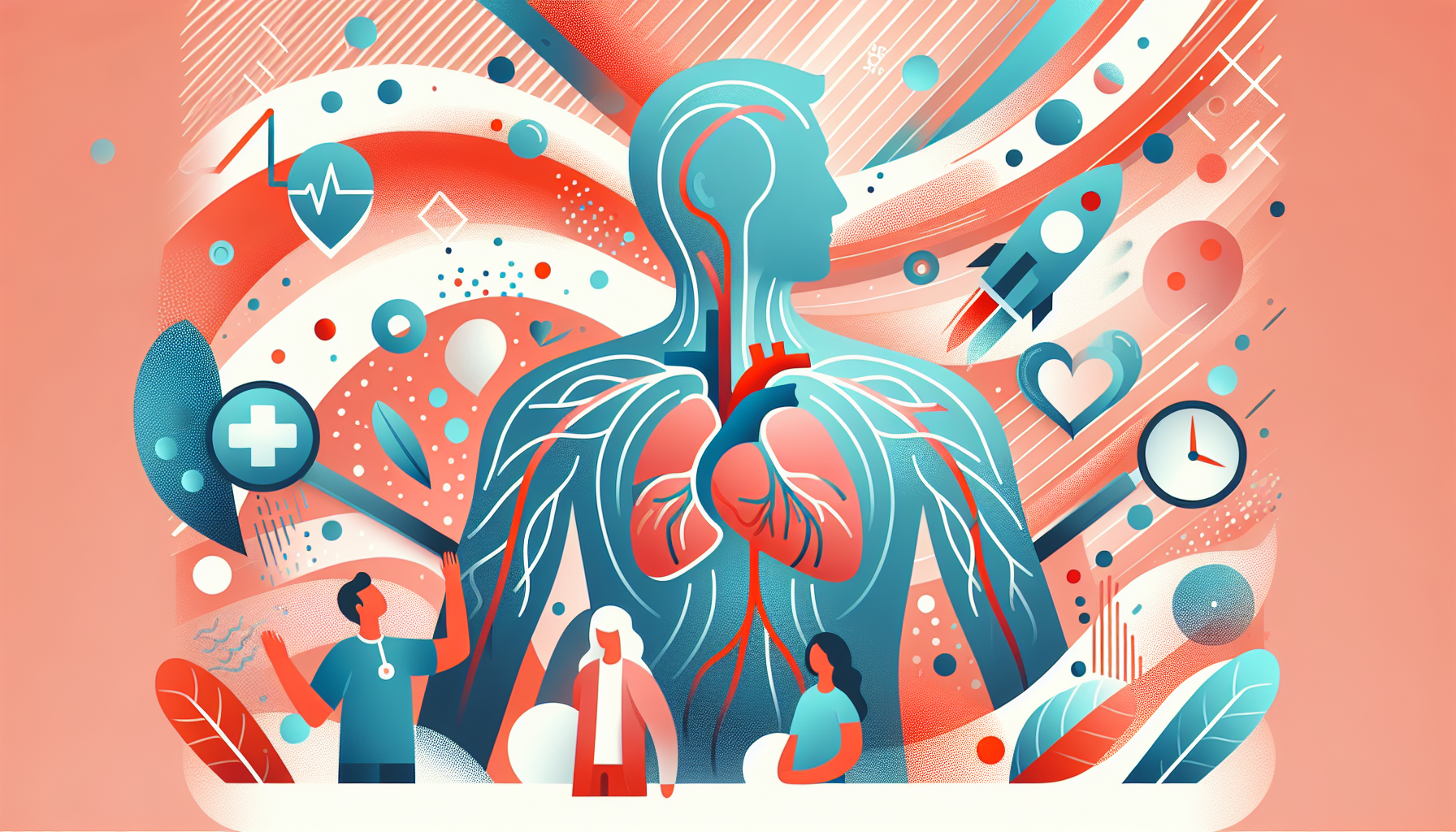Hypertrophic cardiomyopathy (HCM) is a condition that causes the heart muscle to become thicker than normal, most commonly at the septum between the ventricles, below the aortic valve. This thickening can lead to stiffening of the heart walls and abnormal heart valve function, which may affect blood flow out of the heart.
Symptoms of Hypertrophic Cardiomyopathy
Many people with HCM have no symptoms or only minor symptoms and can live a normal life. However, some people may develop symptoms that worsen as heart function deteriorates. Symptoms of HCM can occur at any age and may include:
Chest pain or pressure, especially with exercise or physical activity
Shortness of breath (dyspnea), particularly with exertion
Fatigue (feeling overly tired)
Fainting (syncope) due to irregular heart rhythms or abnormal blood vessel responses during exercise
Palpitations (fluttering in the chest) caused by abnormal heart rhythms (arrhythmias)
Sudden death (occurs in a small number of patients with HCM)
Causes of Hypertrophic Cardiomyopathy
HCM can be inherited, running in families, but it can also be acquired as a part of aging or high blood pressure. In some cases, the cause is unknown.
Diagnosing Hypertrophic Cardiomyopathy
To diagnose HCM, doctors consider the patient's medical history, including symptoms and family history, and perform a physical exam. An echocardiogram is a key tool in diagnosing HCM. Additional tests may include:
Blood tests
Electrocardiogram (ECG)
Chest X-ray
Exercise stress test
Cardiac catheterization
CT scan
MRI
Treating Hypertrophic Cardiomyopathy
Treatment for HCM depends on several factors, including the presence of outflow tract narrowing, heart function, and the presence of arrhythmias. The goals of treatment are to prevent symptoms and complications through risk identification, regular follow-up, lifestyle changes, medications, and procedures when necessary.
Lifestyle Changes
Maintain adequate hydration, unless fluid restriction is advised by a doctor
Follow specific fluid and dietary guidelines provided by a doctor, including information about alcohol and caffeine consumption
Engage in non-competitive aerobic exercise, if approved by a doctor
Attend regular follow-up visits with a cardiologist to monitor the condition
Medications
Medications can help relax the heart, reduce obstruction, and improve heart function. Beta-blockers and calcium channel blockers are commonly prescribed. Arrhythmia medications may be used to control heart rate and reduce the occurrence of abnormal heart rhythms. Some medications, such as nitrates and digoxin, should be avoided as they can lower blood pressure or increase the force of the heart's contraction.
Procedures
Septal myectomy: A surgical procedure to remove a small portion of the thickened septal wall, widening the outflow tract from the left ventricle to the aorta
Ethanol ablation: A minimally invasive procedure that involves injecting a small amount of alcohol into the coronary artery supplying blood to the septum, causing the thickened area to shrink
Implantable Cardioverter Defibrillators (ICD): Devices that monitor heart rhythm and deliver energy to the heart muscle to restore normal rhythm when life-threatening arrhythmias are detected
Hypertrophic Cardiomyopathy and Sudden Death
A small number of people with HCM have an increased risk of sudden cardiac death. Risk factors include a family history of sudden cardiac death, young age, episodes of fainting, abnormal blood pressure response during exercise, a history of fast heart rate arrhythmias, and severe symptoms with poor heart function. If you have two or more risk factors, your doctor may prescribe medications or an ICD to prevent arrhythmias.
Preventing Endocarditis
People with obstructive HCM may have a higher risk of infective endocarditis, a serious condition. To prevent endocarditis, take the following precautions:
Inform all your doctors and dentists about your HCM diagnosis
Take antibiotics before any procedures that may cause bleeding, as prescribed by your doctor
Contact your doctor if you experience symptoms of an infection
Maintain good oral hygiene
For more information about hypertrophic cardiomyopathy, visit the following reputable sources:



